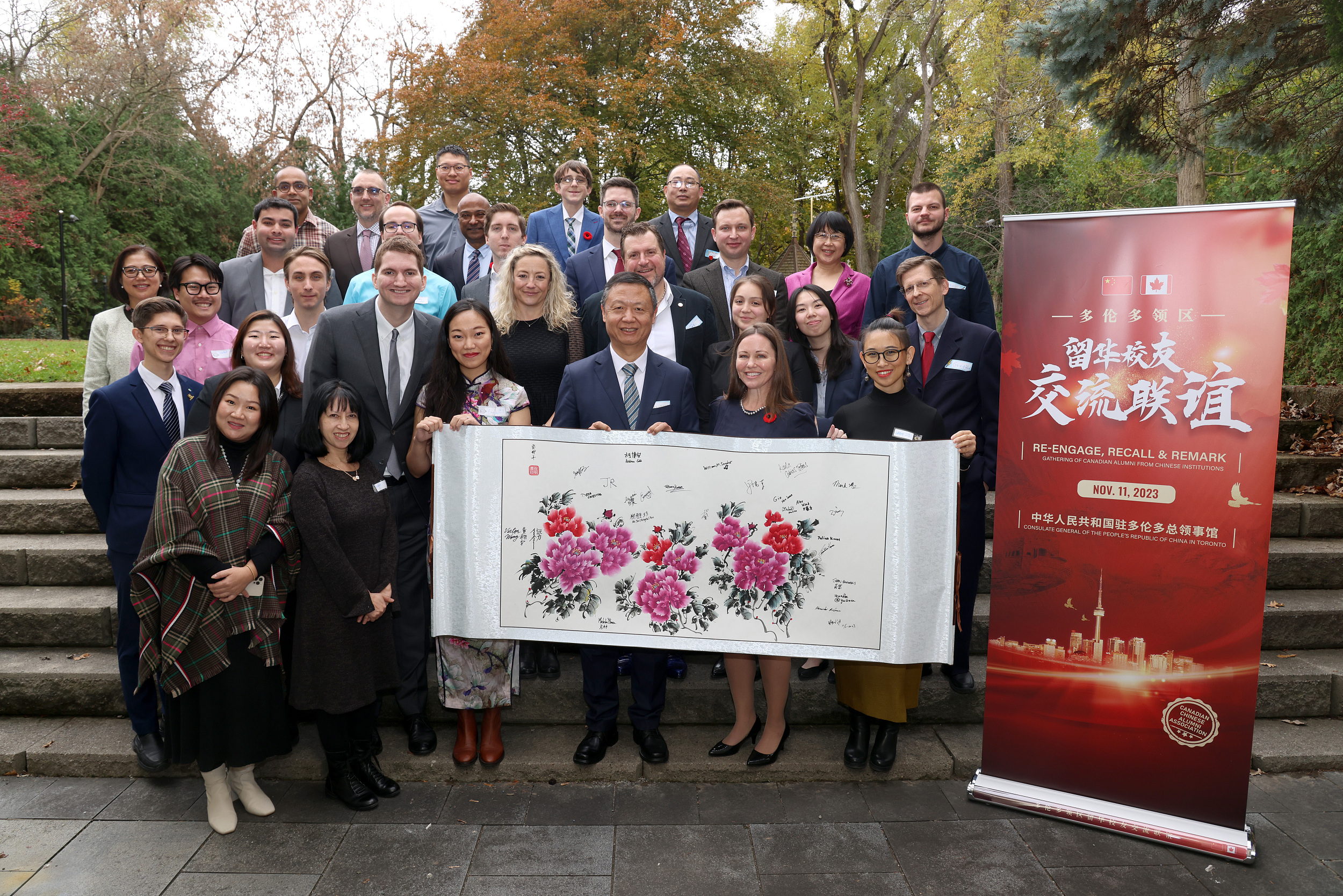Canada's Myopic Policy Hinders Sci-tech Exchanges

Consulate-General of China in Toronto holds the gathering of Canadian alumni of Chinese institutions on November 11, 2023. (PHOTO: VCG)
By?GONG?Qian
The Canadian government recently unveiled new restrictions on research grants and funding to prevent the sharing of its advanced technologies with 103 "Named Research Organizations" from China, Russia and Iran, citing national security concerns.
The restrictions, released on January 23, include a long list of sensitive research it does not want to share, including artificial intelligence, quantum science, robotics, biotechnology, advanced weapons, space and satellite technology and human-machine integration.
Under the circumstances, applicants won't get federal funding if they conduct research in these fields by partnering with the institutions on the security blacklist.
Such repeated trickery is once again politicizing sci-tech cooperation issues, and would not only impair the normal global academic exchanges, but also further impede the benefits of sci-tech advancement from global cooperation.
In February 2023, the Canadian government rolled out a similar policy, but the new restrictions still took many academics by surprise.
On the one hand, sensitive technologies on the list are very broad. "It's almost everything under the sun," Philip Landon, interim president and CEO of Universities Canada, told Science Business.
On the other hand, "The scope [of the rules] is significant," Ian Milligan, an associate vice president at the University of Waterloo, one of Canada's top tech universities, told Science Business . "It will affect many of our researchers."
The new rules would put chains on many Canadian universities, considering they are decrying the fact that Canada's R&D spending is among the lowest of major Western economies. In addition, the new rules could possibly burden them through extra security expenses.
The Canadian Association of University Teachers (CAUT) said it worries Ottawa might have gone too far, according to Canadian newspaper the Free Press.
CAUT is concerned about limiting the global exchange of scientific research, the negative impact on academic freedom and an overall chilling effect on certain research areas of importance to Canadians, the group's Executive Director David Robinson said in a statement.
"Moreover, serious concerns remain about security agencies targeting academics from or of descent from the countries of concern," said CAUT.
Meanwhile, the federal officials are also concerned about a chill within the research community (e.g. ethnic communities may be targeted), and are wary that listing specific institutions as risks "will have an impact on Canada's bilateral relations," according to official documents reported on by the Canadian Press.
However, "it fails to acknowledge that knowledge is exchanged and there are mutual benefits derived from collaborations," Tamer ?zsu, professor at the Cheriton School of Computer Science at the University of Waterloo, wrote in his article published on Policy Options.
"Canada shouldn't be a leader in restricting research," said ?zsu.
"Sci-tech exchanges and cooperation between China and Canada are two-way and mutually beneficial. The relevant policy of Canada is short-sighted and unwise and hurts others as well as itself," said China's Foreign Ministry Spokeswoman Mao Ning.






